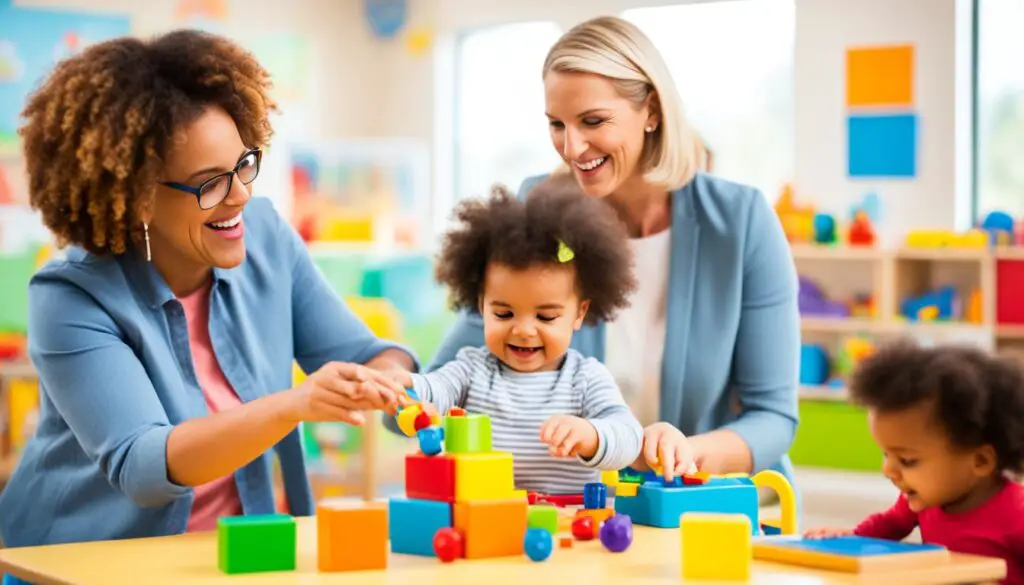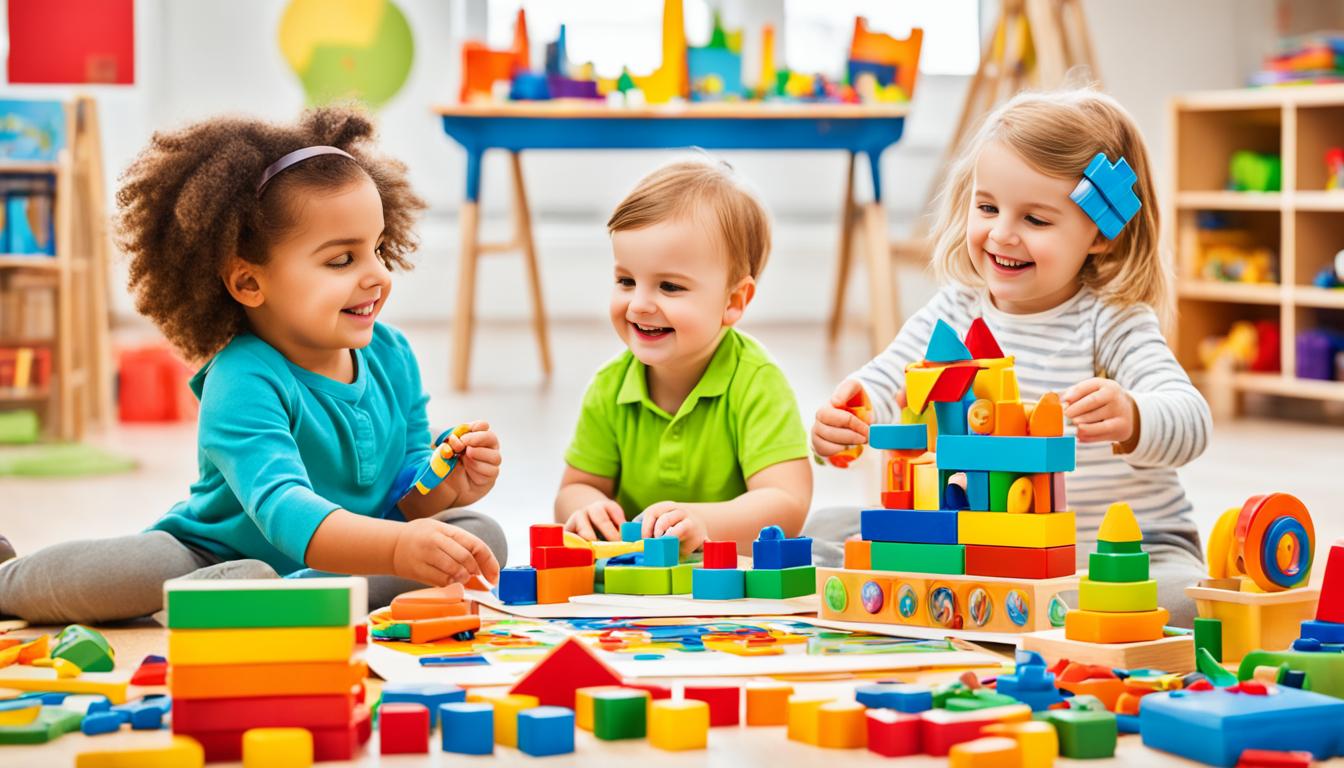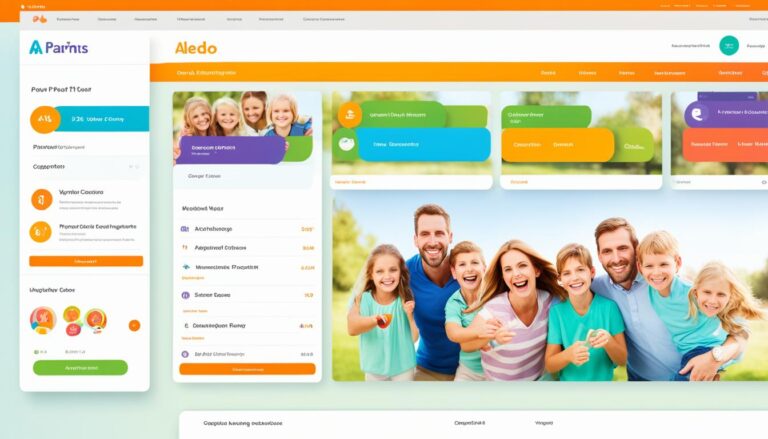Understanding Early Learning Standards: A Comprehensive Guide
As an early childhood educator, I know how important it is to provide children with the best possible foundation for their future success. That’s why understanding early learning standards is crucial. These standards shape children’s development and ensure they are ready for school.
Early learning standards are guidelines that outline the specific knowledge, skills, and behaviors that children should acquire at different stages of their early years. By following these standards, educators and parents can create an environment that supports children’s overall growth and school readiness.
Whether you’re a parent or an educator, this comprehensive guide will help you navigate the world of early learning standards. Let’s explore the significance of these standards, how they impact children’s development, and how to effectively implement them in your educational setting.
Key Takeaways:
- Early learning standards play a crucial role in children’s development and school readiness.
- Children exposed to high-quality early learning experiences tend to have better outcomes in academics, social-emotional skills, and overall wellbeing.
- The standards focus on critical areas like language and literacy, mathematics, science, social studies, physical development, and social-emotional skills.
- Implementing early learning standards involves curriculum planning, assessment, and professional development for educators.
- By understanding and implementing early learning standards, we can ensure that children receive the support they need to thrive academically and emotionally.
The Importance of Early Learning Standards
Early learning standards have a significant impact on children’s development and school readiness. Research shows that children who are exposed to high-quality early learning experiences tend to have better outcomes in academics, social-emotional skills, and overall well-being.
Early learning standards provide a clear roadmap for educators and parents to identify what children should know and be able to do at different ages and stages of their early years. These standards focus on critical areas such as language and literacy, mathematics, science, social studies, physical development, and social-emotional skills. By establishing a strong educational foundation in these areas, early learning standards help children build the necessary skills and knowledge to succeed in school and beyond.

| Benefits of Early Learning Standards | Developmental Areas |
|---|---|
| 1. Improved academic outcomes | Language and literacy |
| 2. Enhanced social-emotional skills | Mathematics |
| 3. Better school readiness | Science |
| 4. Increased overall well-being | Social studies |
| 5. Establishing educational foundation | Physical development |
| Social-emotional skills |
Implementing Early Learning Standards
Implementing early learning standards involves several essential components to ensure effective teaching and learning. As an educator, I play a central role in translating these standards into meaningful experiences and activities for children. Utilizing the standards as a guide, I engage in curriculum planning, selecting appropriate learning materials, and developing age-appropriate activities that promote children’s learning and development.
In addition to curriculum planning, assessing children’s progress is a crucial aspect of implementing early learning standards. I employ a variety of assessment tools and strategies to gather information about the skills and knowledge that children possess. This valuable information enables me to make informed instructional decisions and tailor my teaching approach to meet each child’s individual needs.
Continual professional development opportunities are vital for educators like myself to stay updated with the latest research and best practices in early childhood education. By continuously improving my knowledge and skills, I can provide high-quality learning experiences that align with early learning standards and support children’s overall development and school readiness.
FAQ
What are early learning standards?
Early learning standards outline the knowledge, skills, and behaviors that young children should acquire at different stages of their early years. They provide a framework for educators and parents to ensure that children are exposed to age-appropriate experiences and activities that support their overall growth and readiness for formal education.
What impact do early learning standards have on children’s development?
Research shows that children who are exposed to high-quality early learning experiences tend to have better outcomes in academics, social-emotional skills, and overall well-being. Early learning standards provide a clear roadmap for educators and parents to identify what children should know and be able to do at different ages and stages of their early years.
What areas do early learning standards focus on?
Early learning standards focus on critical areas such as language and literacy, mathematics, science, social studies, physical development, and social-emotional skills. By establishing a strong educational foundation in these areas, early learning standards help children build the necessary skills and knowledge to succeed in school and beyond.
How are early learning standards implemented?
Implementing early learning standards involves various components to ensure effective teaching and learning. Educators play a central role in translating early learning standards into meaningful experiences and activities for children. They use the standards to guide their curriculum planning, select appropriate learning materials, and develop age-appropriate activities that promote children’s learning and development.
How do educators assess children’s progress in relation to early learning standards?
Educators use a variety of assessment tools and strategies to gather information about children’s skills and knowledge and make informed instructional decisions. Assessing children’s progress is an essential part of implementing early learning standards as it helps educators understand how children are progressing and tailor their teaching to meet individual needs.
Why is professional development important in implementing early learning standards?
Professional development opportunities are vital for educators to stay updated with the latest research and best practices in early childhood education. By continuously improving their knowledge and skills, educators can provide high-quality learning experiences that align with early learning standards and promote children’s optimal development and school readiness.






